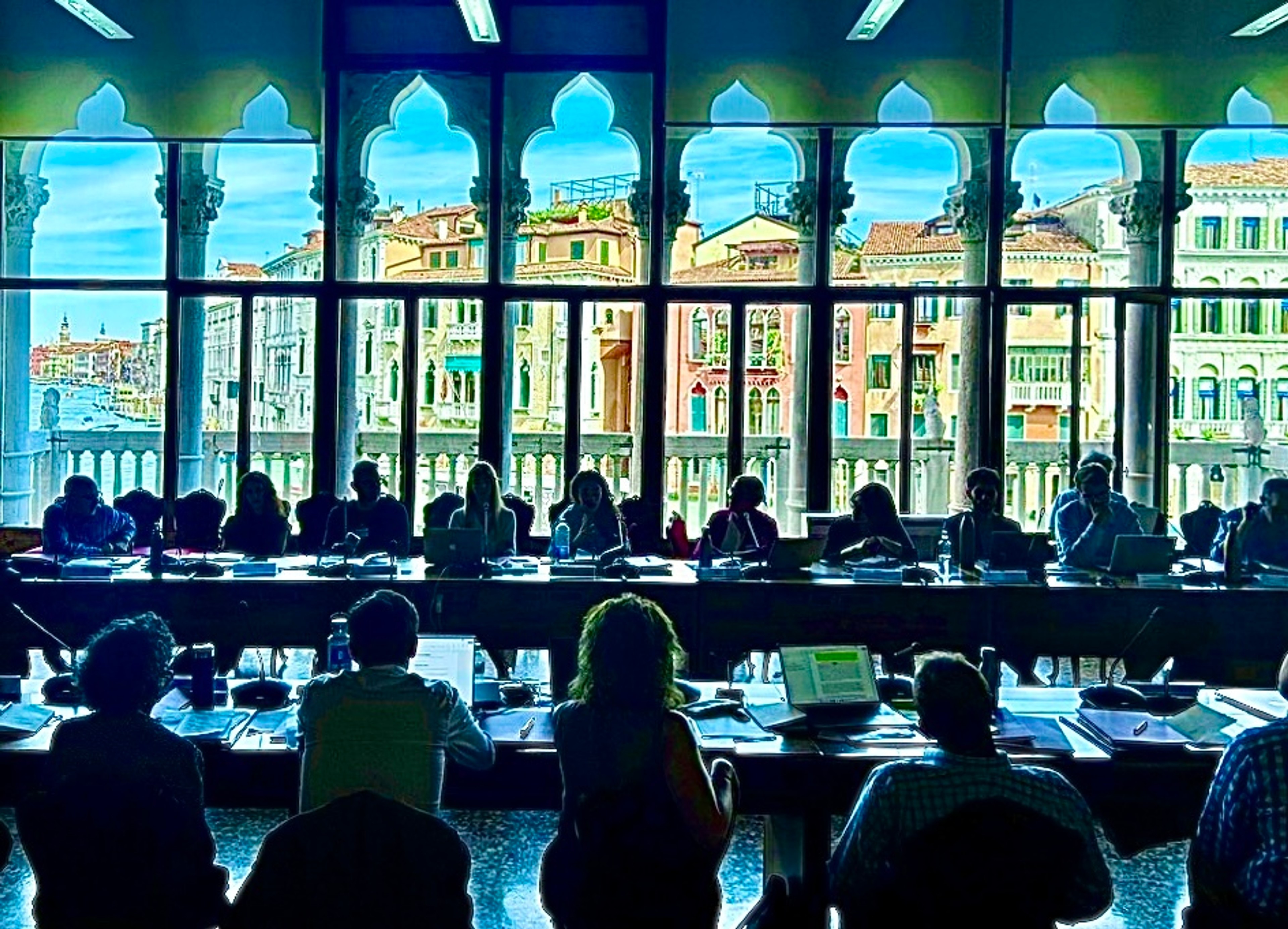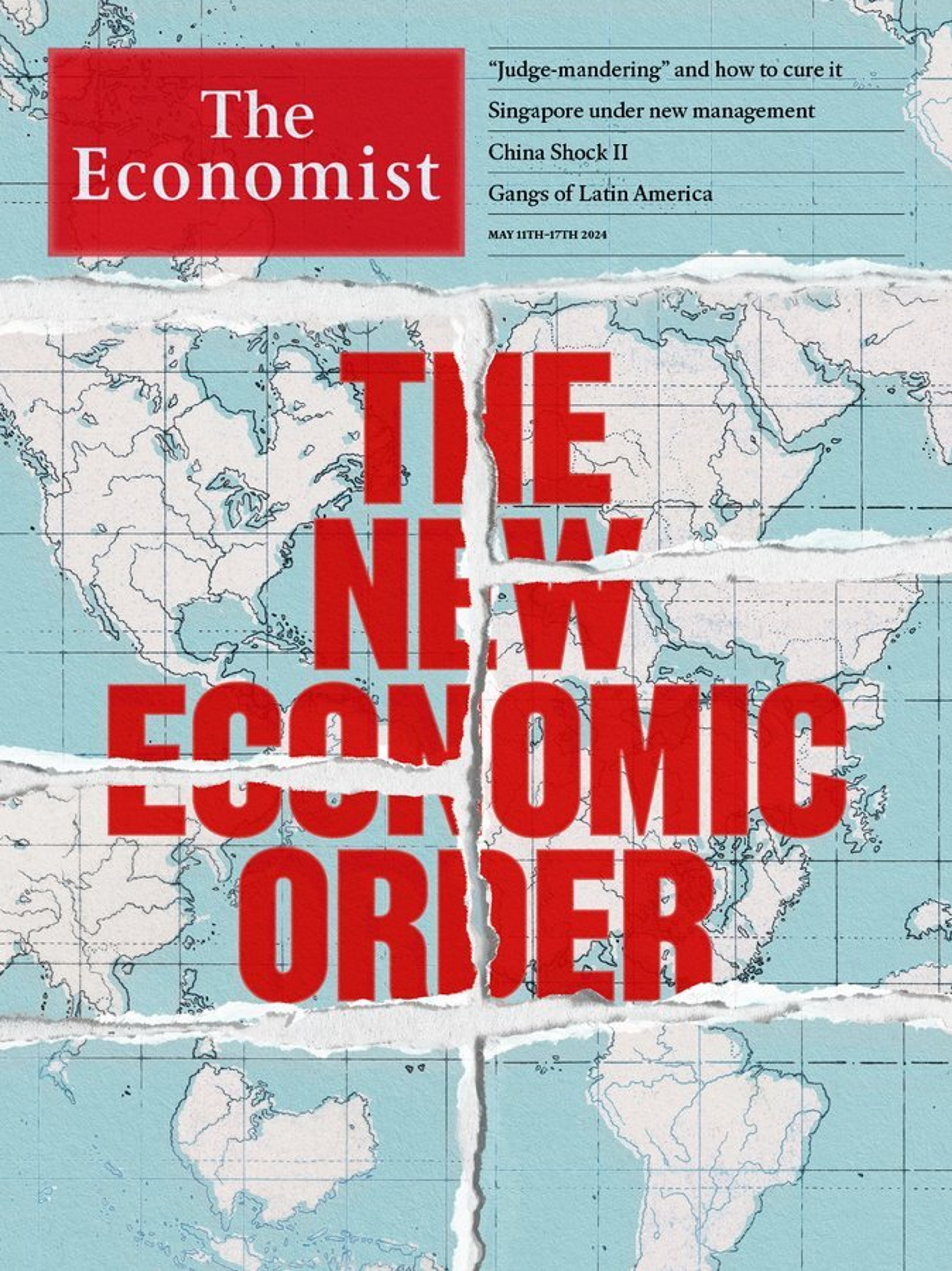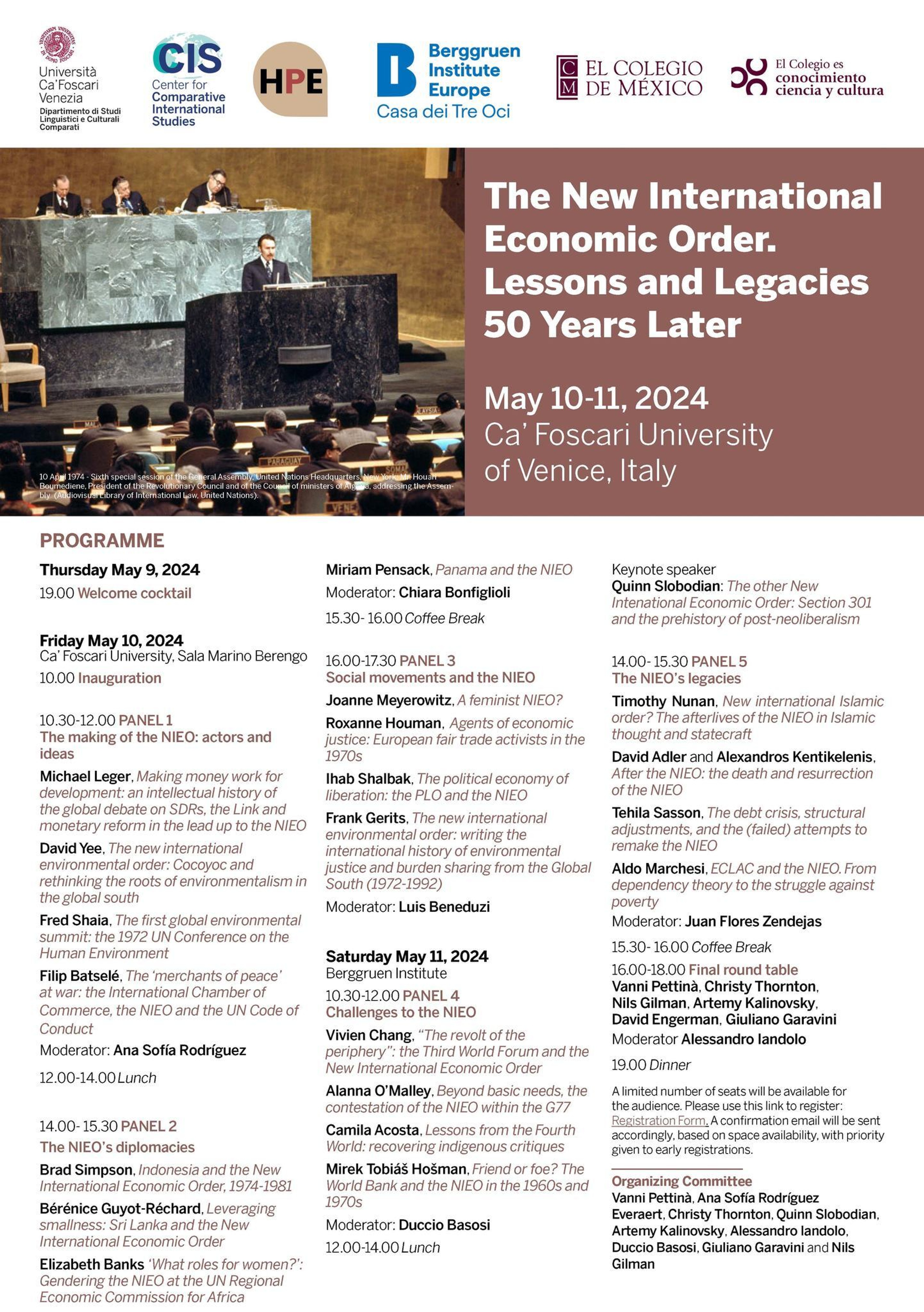The New International Economic Order: Lessons and Legacies Fifty Years Later

- Date: May 10, 2024

As Hagen Schultz-Forberg has observed, “One of the key signatures of modern history is the constant invocation of the future through the constant reinterpretation of the past.” In this register, the Berggruen Institute Europe, in collaboration with Ca’Foscari University, gathered in Venice in May 2024 a group of some thirty leading and emerging scholars of development and international history to revisit the history of the New International Economy Order, on the occasion of the 50th anniversary of the NIEO’s proclamation by the United National General Assembly. The proclamation of the NIEO inaugurated arguably the most important debate of the 1970s about the global political economy – specifically about the structural relationship between rich, industrialized countries, on the one hand, and the poorer, recently decolonized, developing nations, on the other. Indeed, the language of the “Global North” and the “Global South,” common today, emerged precisely out of post-NIEO discussions about the mutual obligations and mechanisms of interdependence between these two major blocs. Revisiting “the NEIO moment,” which The Economist magazine also did this same week in its cover story, underscored how the current so-called neoliberal global order was forged out of the crucible of economic stagflation, feminist and anticolonial struggles, and new perceptions of ecological and resource limits in the 1970s. Just as importantly, the discussion in Venice spurred new ideas among participants for how to find our way out of the seemingly unending polycrisis that began with the global financial crisis fifteen years ago, and which has only accelerated since – realizing the severe limits of sovereigntist approaches to international relations in the face of planetary-scale challenges like climate change and pandemics.
